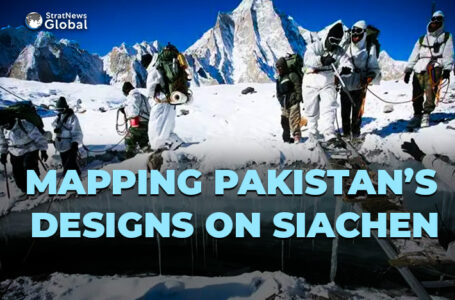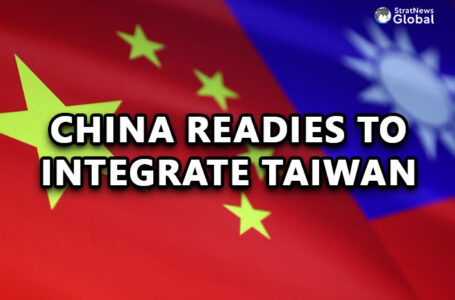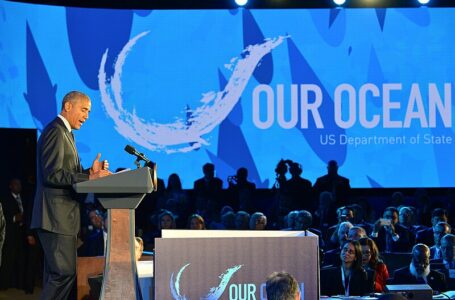Honduras Recalls Top Diplomat From Ecuador Over Mexico Embas...
“Once Australia Trade Deal Is In Place, India Will Cover Large Part Of RCEP Countries”
NEW DELHI: On ‘The Gist‘, Ambassador Anil Wadhwa, Former Secretary (East), MEA, Author of the Confederation of Indian Industry(CII) Australia Economic Strategy Report tells StratNews Global Associate Editor Amitabh P. Revi, “Australia is offering zero tariffs on 97% of trade, and services liberalisation. So, even if India does not reciprocate by way of zero tariffs, India would be looking at giving concessions in some areas.” An Excerpt
Watch the complete conversation here: https://www.youtube.com/watch?v=9YJVE6ZgQ7M
Transcript:
AW: From all indications, Australia has been very generous in its offer as far as trade is concerned. At least 97% of our trade is covered by their offer of zero tariffs. Starting from that point of view, obviously Australia would require some benefits out of this agreement as well. After all it’s a give and take in these negotiations. Naturally, India would be looking at giving concessions in areas where we already import perhaps exclusively or to a large extent from Australia, because then our imports become that much cheaper by reduction of tariffs. So, even if India does not reciprocate by way of zero tariffs, which perhaps it will not, but at the same time, it seems to be in a good position with this offer on the table. And as far as I know, the Australians have also agreed to look at services liberalisation in a very effective manner, because of the fact that there is a mutual dependency there, especially in terms of cybersecurity and IT technicians, who are required in the Australian market and also professionals who work in Australian industries. In terms of both goods and services, it seems to be a good offer to take. But, obviously back home here in India, there would be certain sectors which we all know about. You mentioned dairy and agriculture, which are of course very sensitive subjects as far as India is concerned, but also some large ticket imports. For example, India imports about 74% of its coal for the steel industry from Australia. Obviously, because it’s better to import it from there. Perhaps the prices are much better and also the thermal content in Australian coal is much higher. So, all these factors make Australia a popular place to import from. But, at the same time, I think there has to be some kind of duty imposed because otherwise, the self reliant nature of the Indian coal industry and the plans that the government has to increase coal production within the country would suffer. And similarly, India has a nascent wine industry, for instance. That sector also needs to be catered to. We can obviously look at niche areas for imports, but cannot open it up totally. I’m just giving you a few examples to highlight the kind of problems that can arise in these negotiations. I’m not saying that these are the sticking points because nobody knows what they are. But, from all accounts, the positions are very close. And as you know, always in these negotiations, it’s the whole package, which goes together, so nothing is agreed until everything is agreed and that’s where we are at the moment.
APR: India has been talking a lot about trade agreements for the near past. Recently a deal was signed with the UAE, there’s the interim agreement with Australia expected, UK, EU, Israel. There are so many in the queue. Why is India focusing so much now on trade deals at this geopolitical moment, especially when we pulled out of RCEP?
AW: You precisely pointed to the right reason. Since we are not in the RCEP, we have to open up with the others wherever we can. With RCEP, we have the cushion of having an FTA with ASEAN. Now with the limited CECA with Australia, we will cover one more country we already have trading arrangements with. We have similar trading arrangements with Japan and Korea. So that leaves only China and New Zealand out. And I suppose once we have this in place, we will pretty much cover a large part of our trade with these countries in RCEP. But, at the same time, in order to make sure that our imports become a little more cheaper, so that inputs are cheaper into the economy and we can export much more of the products that we already are exporting to countries like UAE, UK, Canada etc, we are looking at the limited CECA route. This will allow us to concentrate on goods and services. Goods, particularly in the range of those which are carried out the most between these countries and India and services which are in any case our strength and opening up of services would be of benefit to India generally. This seems to be the thinking right now. And I think when the Indian economy gets more resilient in terms of the strengthening of the domestic industry through the PLI schemes and investments into the market from outside, then that would be the point to look at much larger groupings or agreements which India could enter into.





















